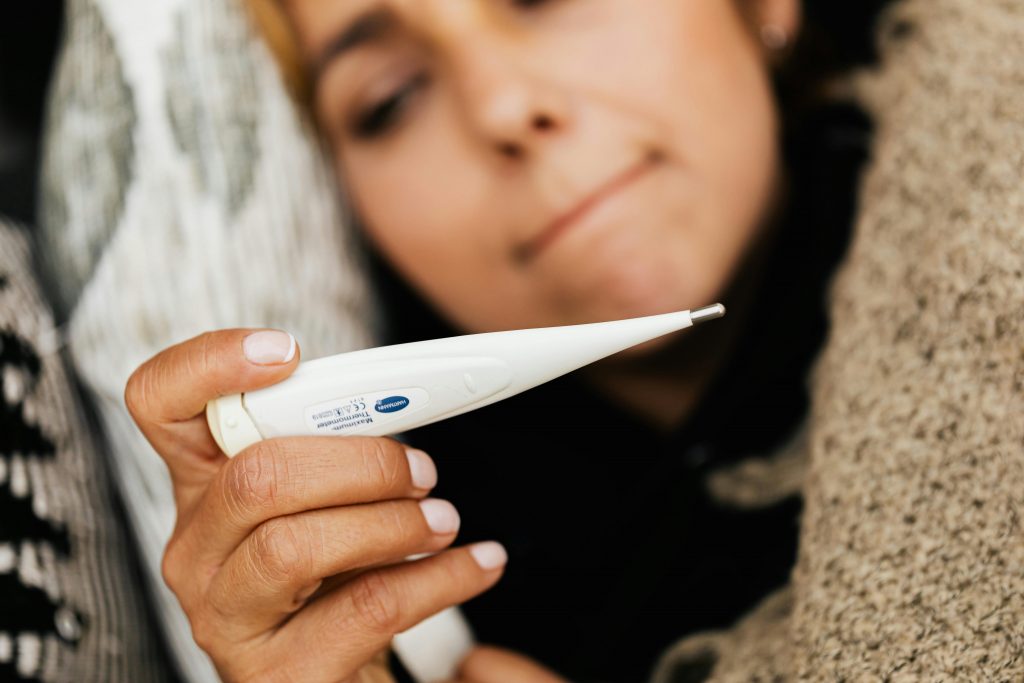Illness is a natural part of life, yet many people wonder why they get sick even when taking care of themselves. The answer lies in a combination of factors, including exposure to germs, lifestyle habits, environmental influences, genetics, and mental well-being. Each of these components can weaken the body’s defenses, making it more susceptible to infections and chronic illnesses. Understanding the causes of illness empowers you to take proactive steps to protect your health.
Infections are caused by microorganisms such as bacteria, viruses, fungi, and parasites. These pathogens enter the body through contaminated food, water, surfaces, or close contact with infected individuals. A strong immune system is essential to fight these invaders, but modern lifestyles can compromise immunity. Factors such as poor nutrition, inadequate sleep, stress, smoking, and a sedentary lifestyle make it harder for the body to defend itself.
Environmental factors, including pollution, allergens, and climate changes, also play a role in susceptibility. Genetics determines predisposition to certain diseases, while age influences immune efficiency. Finally, mental health can impact physical health, as chronic stress, anxiety, and depression weaken immune responses. By addressing these areas with targeted strategies—like hand hygiene, diet, exercise, and stress management—you can significantly reduce the frequency and severity of illnesses.
Germs and Pathogens: The Main Culprits

Germs are the most immediate reason we fall ill. Microorganisms such as bacteria, viruses, fungi, and parasites invade the body, disrupt cellular functions, and trigger immune responses. Bacteria are single-celled organisms that can cause illnesses like strep throat, urinary tract infections, and pneumonia. Viruses, much smaller, invade host cells to replicate, causing diseases such as the flu, common cold, and COVID-19. Fungi, including molds and yeast, can affect skin, nails, and internal organs, while parasites like Giardia or malaria-causing protozoa survive by feeding off the host.
Germs enter the body in multiple ways:
- Contaminated food or water: Improperly cooked meals or polluted sources can harbor bacteria and parasites.
- Airborne transmission: Sneezing, coughing, or aerosolized particles spread viruses and bacteria.
- Physical contact: Touching infected surfaces or handshakes can transmit germs.
- Insect bites: Mosquitoes and ticks carry disease-causing pathogens.
Preventing infections requires careful attention to hygiene and sanitation. Wash hands frequently with soap, especially before meals or after touching public surfaces. Disinfect frequently used surfaces at home, particularly in kitchens and bathrooms. Cook foods thoroughly and store them safely. Use protective measures such as masks during flu season or in crowded areas. By reducing exposure to pathogens, you minimize the risk of getting sick, keeping your body healthier in the long term.
Weak Immune System and Susceptibility
A strong immune system acts as the body’s primary defense against germs. However, many factors can weaken immunity, leaving individuals vulnerable to illness. Poor nutrition, chronic stress, sleep deprivation, underlying medical conditions, and age-related immune decline are all contributors. Nutrient deficiencies in vitamins A, C, D, and minerals like zinc reduce the production of immune cells and antibodies. Stress hormones, particularly cortisol, suppress immune responses, making infections more likely. Sleep is critical because the body produces infection-fighting proteins during rest; without sufficient rest, defenses falter.
Other contributors include chronic illnesses such as diabetes, autoimmune disorders, and HIV, which impair immune function. Infants and older adults naturally have weaker immune responses, making them more prone to illness. Lifestyle choices also influence immunity—smoking, alcohol consumption, and sedentary behavior increase vulnerability.
Strategies to strengthen the immune system include:
- Balanced nutrition: Incorporate fruits, vegetables, lean proteins, and whole grains.
- Regular exercise: Moderate activity boosts circulation and immunity.
- Adequate sleep: Aim for 7–9 hours per night.
- Stress management: Meditation, yoga, and relaxation techniques reduce cortisol levels.
- Hydration: Proper fluid intake supports lymphatic circulation and toxin elimination.
A strong immune system not only reduces the frequency of infections but also helps the body recover faster when illness occurs, emphasizing the importance of lifestyle and daily habits in disease prevention.
Lifestyle Factors Contributing to Illness
Modern lifestyles often play a hidden role in why people get sick. Poor hygiene, sedentary routines, inadequate sleep, smoking, alcohol, and unbalanced diets all contribute to a weakened defense system. For instance, failing to wash hands or handle food improperly increases the risk of gastrointestinal or respiratory infections. Sedentary habits reduce blood circulation, which impairs the delivery of immune cells to areas that need protection. Smoking damages respiratory linings, while excessive alcohol intake suppresses immune function and increases inflammation.
Other lifestyle-related risks include:
- Overcrowded living conditions: Higher exposure to pathogens.
- Travel to crowded areas or public transport: Increases contact with germs.
- Irregular routines: Skipping meals, irregular sleep, and inconsistent hygiene weaken immunity.
Simple lifestyle adjustments can significantly reduce illness risk:
- Practice daily hygiene: Handwashing, showering, and oral care.
- Exercise regularly: Even 30 minutes of walking boosts immunity.
- Moderate alcohol and quit smoking: Supports respiratory and immune health.
- Meal planning: Include nutrient-dense foods rich in vitamins, minerals, and antioxidants.
These small but consistent changes help the body resist pathogens and maintain overall wellness. Adopting a proactive approach is key to long-term health.
Environmental Factors and Illness
Environmental exposure contributes greatly to why people get sick. Air pollution, allergens, toxins, contaminated water, and seasonal climate changes all stress the body and compromise immunity. Pollutants can irritate lungs and trigger chronic inflammation, while allergens like dust, pollen, and mold provoke immune reactions that weaken overall resistance. Seasonal changes, particularly in winter, dry out mucous membranes, making the respiratory tract more susceptible to infections. Contaminated water and food sources can lead to gastrointestinal illnesses.
Environmental precautions include:
- Air quality: Use HEPA filters and ventilate living areas.
- Water safety: Use filtered water and store properly.
- Allergen control: Regularly clean surfaces, vacuum carpets, and reduce dust accumulation.
- Clothing and bedding hygiene: Wash frequently to remove allergens and pathogens.
By reducing environmental stressors, the immune system is better able to focus on fighting pathogens rather than managing inflammation or toxin exposure.
Genetics and Predisposition

Genetics also plays a role in why some people get sick more frequently than others. Certain inherited conditions affect immune system strength, making it harder to fight infections. Genetic predispositions to chronic illnesses such as diabetes, cardiovascular disease, or autoimmune disorders further increase susceptibility to disease. Additionally, a family history of allergies, asthma, or respiratory illnesses can predispose individuals to recurrent sickness.
While genetics cannot be changed, being aware of inherited risks allows for preventive measures:
- Early screenings: Regular check-ups detect potential issues sooner.
- Vaccinations: Provide additional protection for at-risk individuals.
- Lifestyle adjustments: Diet, exercise, and stress management are especially important for those with family predispositions.
Understanding genetic risks helps individuals tailor their health habits and preventive strategies, improving resilience against illness.
Mental Health and Stress
Chronic stress, anxiety, and depression can significantly impact physical health, making the body more prone to illness. Stress hormones suppress immune function, increase inflammation, and interfere with sleep and nutrition—three critical factors for disease resistance. People under constant stress are more likely to experience colds, flu, and infections. Mental health and physical health are intertwined, and maintaining emotional well-being is vital to preventing sickness.
Strategies include:
- Mindfulness meditation: Reduces cortisol levels and strengthens immunity.
- Physical activity: Combats stress and improves mood.
- Therapy or counseling: Provides support for chronic anxiety or depression.
- Hobbies and social connection: Reduce isolation and improve overall well-being.
Investing in mental health is an indirect but powerful way to reduce illness susceptibility, supporting both body and mind.
Nutrition and Hydration
A balanced diet and adequate hydration are fundamental to preventing sickness. Nutrient deficiencies compromise immune responses, while dehydration slows toxin elimination. Essential vitamins like A, C, D, E, and minerals like zinc and selenium are critical for maintaining white blood cell function and producing antibodies. Sugary, processed, and fried foods increase inflammation and reduce the body’s capacity to fight infection. Hydration is equally important, as lymphatic fluid and circulation depend on adequate water intake.
Tips for immune-supporting nutrition:
- Eat a rainbow of fruits and vegetables for antioxidants.
- Include lean protein sources like fish, chicken, or legumes.
- Healthy fats such as olive oil, nuts, and seeds support cell membranes.
- Drink plenty of water to stay hydrated and maintain mucous membrane function.
A nutrient-rich diet strengthens immunity, enhances recovery, and supports overall health throughout the year.
Preventive Measures
Preventing illness goes beyond diet and exercise; it involves a comprehensive approach. Regular handwashing, vaccinations, exercise, stress reduction, sleep, and environmental awareness are all key. Using preventive strategies reduces exposure to pathogens, supports immune function, and lowers the frequency and severity of sickness.
Key preventive tips:
- Hand hygiene: Wash hands for 20 seconds with soap.
- Vaccinations: Flu, COVID-19, and other recommended shots.
- Regular exercise: Boosts circulation and immunity.
- Sleep: Prioritize 7–9 hours per night.
- Stress management: Yoga, deep breathing, and meditation.
- Home cleanliness: Disinfect surfaces and maintain airflow.
Additionally, lifestyle awareness—like avoiding crowded areas during flu season—further reduces risk. Learning how to avoid getting sick emphasizes building immunity and healthy habits rather than relying solely on medications.
When to Seek Medical Help
Despite precautions, illness can occur. Seek medical attention if:
- Symptoms persist longer than expected.
- High fever, severe pain, or difficulty breathing develops.
- Chronic conditions compromise immunity.
- New rashes, swelling, or unusual fatigue occur.
Early diagnosis prevents complications, ensures proper treatment, and speeds recovery, reinforcing the importance of timely medical intervention.
Building Long-Term Health Habits
Preventing sickness requires a holistic approach. Daily habits, environmental care, mental wellness, and nutrition all contribute to long-term health. By prioritizing exercise, sleep, diet, stress management, hygiene, and preventive care, individuals can strengthen immunity and reduce illness risk. Regular check-ups and vaccinations ensure early detection and protection, while mental wellness supports overall resilience.
The goal is not just to fight infections but to create a lifestyle that naturally supports health, vitality, and longevity. Combining preventive habits with knowledge about why we get sick empowers individuals to take control of their wellness.


